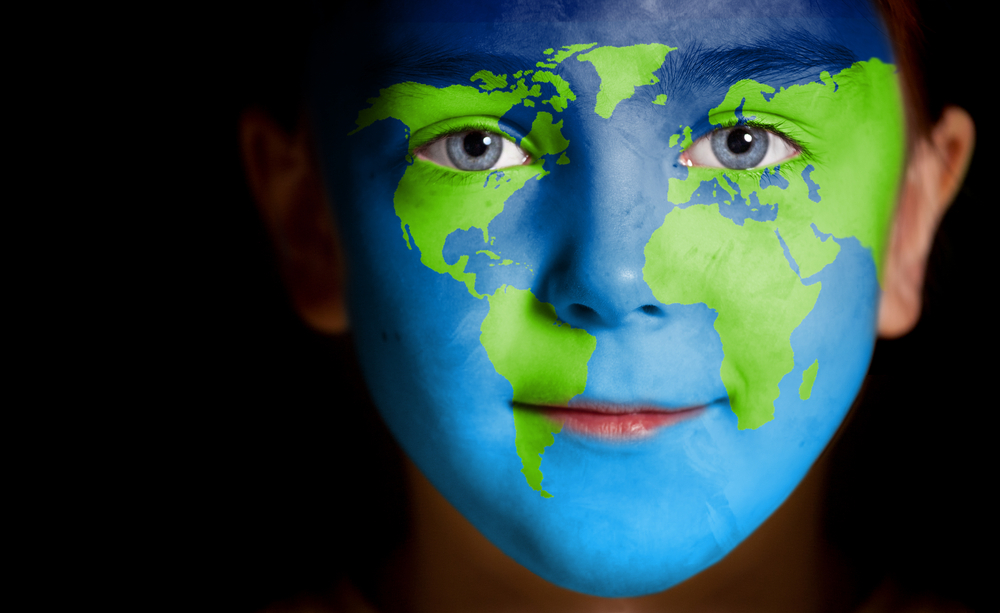A Maker of Maps for the Modern World
OZY |

By Pooja Bhatia
Three years ago, Parag Khanna set out on an improbable mission: to create a geopolitical coffee-table book. His publisher indulged him, skeptically, because who turns international relations into a coffee-table book? And yet, due out this month from Penguin Random House is Connectography: Mapping the Future of Global Civilization, a truly handsome thing, filled to bursting with strange and gorgeous maps. “Strange” because Khanna prefers charting movement and networks rather than political borders. Geography, he says, is no longer destiny. Connectivity — in flows of people, goods, capital and ideas — is the story of the 21st century.
At 38, Khanna remains something of a wunderkind. Connectography is his fourth book (he co-authored one of them with his wife, Ayesha), and he appears regularly in outlets ranging from the Financial Times to CNN, where he is a Global Contributor. And yet, speaking at TED 2016 in Vancouver in February was in a whole other category of pressure, Khanna says: “The one night in the last decade I didn’t sleep well was the night before my TED Talk.” (We couldn’t tell; decide for yourself by watching the co-premiere of the talk.)
Last week, OZY caught up with Khanna, who is based in Singapore, to talk about neo-isolationism, the future of sovereignty and how the world will end. An edited version of our conversation follows.
OZY: Your book argues that we’re heading toward a more connected society. So what do you make of the popularity of Donald Trump and others in Europe who could be described as neo-isolationist?
Parag Khanna: I have very little patience for neo-isolationist arguments — neo-isolationism is both illogical and counterproductive. Every society today benefits from connectivity, whether it’s the lower cost of imported goods or markets for exports. In the United States, demand for Mexican immigration is in equal and opposite force to the supply, and if you don’t allow migrants in, you’ll undercut your own economy’s basic needs. America is aging, and it needs younger people to work hard, pay taxes, care for the elderly, work in agriculture, and so forth. If you don’t want more migrants, have more kids. Don’t put up more walls.
As for Trump, his popularity is not only the failure of American politics, but also the failure of American policy. America has not developed coherent investment strategies that benefit all of society, particularly the bottom 20 percent.
OZY: Does connectivity mean an end to sovereignty?
P.K.: It’s not that sovereignty and connectivity are opposites; it’s that one of them transcends the other. Sovereignty is just one concept among others that has helped us understand how political societies relate to one another at a given point in time. But there’s nothing about the organization of human society that inherently requires political science concepts. Sometimes I’m not sure why I went through all the trouble of getting a PhD in it [international relations]!
Look at it this way: Modern international law has existed for barely 100 years. Nations have been around only a couple hundred years. Cities, in fact, are much longer standing modes of political organization — they’ve been around for 5,000 years. Today we have global capital markets and, in the form of the Internet, ubiquitous technological connectivity. You can’t possibly believe that sovereignty is more powerful than those. It’s like Roger Federer on the tennis court with my 4-year-old son. Federer being the Internet.
OZY: Who are your favorite thinkers?
P.K.: No opinion matters more to me than Charles Pirtle’s, who was a professor of mine at Georgetown: He’s a geopolitical legend, one of those people who seemed to know everything about everything. Almost everything I write is a response to his sophomore year seminar. Everyone who was lucky enough to have a good undergraduate experience had one special person, a mentor. He now lives on a ranch in Ohio where he’s writing a book about foreign influences on 19th century Chinese military doctrines.
The other mentor is Robert Kaplan, The Atlantic’s war correspondent. Over the last 20 years I’ve found myself recreating quite a few of his travels from when times were quite frankly much tougher. I’ll never be a fraction of the writer that he is. But his bravery– his ability to call it like he sees it– has been an inspiration.
OZY: How do you think human civilization will end?
P.K.: TED Talks are meant to have a happy ending, and mine certainly does. But– and I make this quite clear in the book– we are urbanizing rapidly and becoming an ever-more coastal, ever-more urban civilization. Large concentrations of humanity are populating coastal cities in Asia, and that’s where all the world’s worst volcanic activity is, where sea levels are most dangerously rising, where the tsunami threat is highest. So how will mankind go extinct? Barring a meteor strike, it probably will be through a mass drowning of the Asian urban population. Literally.